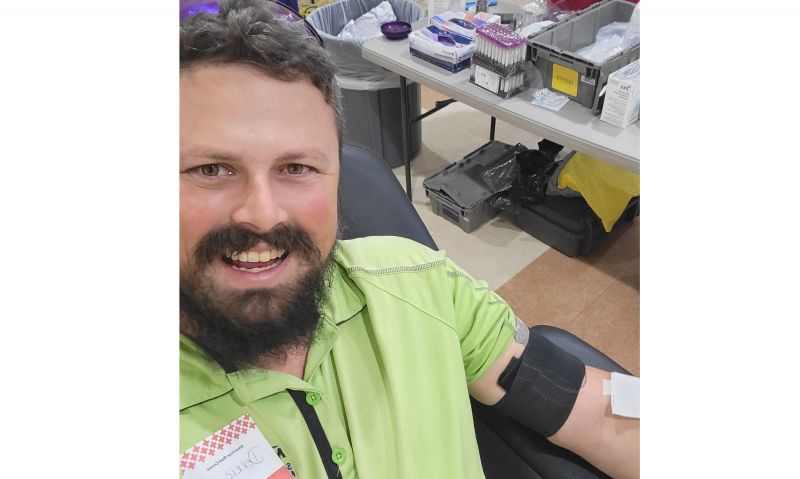
New eligibility requirements allow more veterans to donate blood
The U.S. Food and Drug Administration (FDA) has lifted a ban that prevented millions of veterans, servicemembers, dependents and civilian personnel stationed in parts of Europe from 1980 to 1996 from donating blood. The ban was meant to prevent transmission of a “mad cow disease,” a deadly disease that spread across parts of Europe in the 1980s.
Among the estimated 4.4 million veterans, servicemembers, dependents and civilian personnel previously unable to donate blood is Army veteran and West Point graduate Derric Grimes, a member of American Legion Post 116 in Fuquay-Varina, N.C.
Grimes, a past post and district commander and department vice commander, was born at the Army Hospital in Frankfurt, Germany, in 1985 when his father — also an Army veteran — was stationed in Europe.
“He set the example for us kids,” said Grimes, whose father donated blood regularly. “We knew it was a way we could help countless people.”
Then, the FDA changed the rules. It issued a deferral based on the potential exposure to mad cow disease, meaning neither Grimes nor his dad could donate blood.
When the FDA lifted the deferral in 2020, Grimes immediately signed up to do something he says he waited 18 years to do. He went to his American Legion post — which regularly hosts blood drives with the Red Cross — and donated blood for the first time.
“It was amazing,” Grimes said. A rare blood type, Grimes now donates plasma every 28 days.
Grimes said one of the ways American Legion posts can help encourage blood donation, is through the purchase of kits from The American Legion’s Emblem Sales Division.
“It’s a way we can reward people who step up to donate,” he said.
The American Legion has been involved in blood donation since the establishment of the American Legion Blood Donor Program in 1942.
According to the FDA, the COVID-19 pandemic has caused “unprecedented challenges” to the U.S. blood supply. Donor centers have experienced such a dramatic reduction in donations due to the implementation of social distancing and the cancellation of blood drives, that nearly 30% of community blood centers have a critically low supply of one day or less.
In response, the Department of Veterans Affairs is launching an initiative to help increase the number of blood donations.
Click here to find a local blood drive and help spread the word through #RollUpYourSleeveVA2022.
